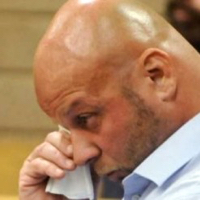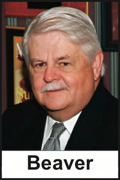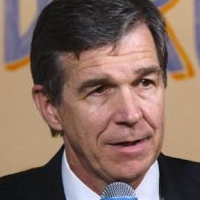Rascals case in brief
In the beginning, in 1989, more than 90 children at the Little Rascals Day Care Center in Edenton, North Carolina, accused a total of 20 adults with 429 instances of sexual abuse over a three-year period. It may have all begun with one parent’s complaint about punishment given her child.
Among the alleged perpetrators: the sheriff and mayor. But prosecutors would charge only Robin Byrum, Darlene Harris, Elizabeth “Betsy” Kelly, Robert “Bob” Kelly, Willard Scott Privott, Shelley Stone and Dawn Wilson – the Edenton 7.
Along with sodomy and beatings, allegations included a baby killed with a handgun, a child being hung upside down from a tree and being set on fire and countless other fantastic incidents involving spaceships, hot air balloons, pirate ships and trained sharks.
By the time prosecutors dropped the last charges in 1997, Little Rascals had become North Carolina’s longest and most costly criminal trial. Prosecutors kept defendants jailed in hopes at least one would turn against their supposed co-conspirators. Remarkably, none did. Another shameful record: Five defendants had to wait longer to face their accusers in court than anyone else in North Carolina history.
Between 1991 and 1997, Ofra Bikel produced three extraordinary episodes on the Little Rascals case for the PBS series “Frontline.” Although “Innocence Lost” did not deter prosecutors, it exposed their tactics and fostered nationwide skepticism and dismay.
With each passing year, the absurdity of the Little Rascals charges has become more obvious. But no admission of error has ever come from prosecutors, police, interviewers or parents. This site is devoted to the issues raised by this case.
On Facebook
Click for earlier Facebook posts archived on this site
Click to go to
Today’s random selection from the Little Rascals Day Care archives….
Click for earlier Facebook posts archived on this site
Click to go to
Today’s random selection from the Little Rascals Day Care archives….
Johnny Small freed, now deserves pardon of innocence

goldsborodailynews.com
Johnny Small
Sept. 14, 2016
“[Chris] Mumma said she intends to request a pardon for [Johnny] Small from Gov. Pat McCrory. In order for Small to be compensated for the years he spent in prison, he has to be exonerated of the charges on the grounds that he did not commit the crime. Under North Carolina law, the Industrial Commission can award exonerees $50,000 for each year spent in prison up to a maximum of $750,000. Exonerees also are eligible for job training and college tuition….”
– From “Johnny Small’s freedom makes some question if investigator should be charged” by F.T. Norton in the Wilmington Star-News (Sept. 9)
Let’s hope McCrory responds more willingly and humanely than he did in finally pardoning Henry McCollum and Leon Brown.
Case closed, Governor – no reinvestigation needed!
![]()
‘The most innocent man I have ever defended’
 May 23, 2012
May 23, 2012
Experienced trial lawyers can’t afford to dwell on lost cases. Sometimes that’s quite a challenge:
“Robert Fulton Kelly…. was the most innocent man I have ever defended and the most victimized criminal defendant in the state’s history. He taught me that under certain circumstances madness can rule the day and overcome everything that is right and just.”
– Gerald Beaver (North Carolina Lawyers Weekly, 2010)
Emissaries from Raleigh bring kneejerk resistance to exoneration

wral.com
Roy Cooper
Sept. 11, 2016
“I honestly don’t understand not only how the Attorney General’s Office felt it was necessary to fight us through a full week of hearing in this case, but how they could stand up at the end of that hearing and say they thought Johnny should stay in prison.
“That is not a minister of justice. A minister of justice should be objective enough to evaluate the evidence in a fair way and there was no way anybody could look at the evidence that came out in that hearing and say Johnny Small should be in prison.”
– Chris Mumma of the N.C. Center on Actual Innocence, quoted in “Johnny Small free after murder charge dismissed” in the Wilmington Star-News (Sept. 8)
I would’ve expected, before my apprenticeship on the exoneration watch, that district attorneys would be less willing to having their fingers pried loose from wrongful convictions than their allies in the attorney general’s office. It’s the DAs, after all, who have to ‘splain their misfeasance to the voting public.
But this often seems not to be the case, as exemplified by Assistant AG Jess Mekeel’s misplaced concern for “the stability and reliability of our justice system.”
How much of this institutional resistance to exoneration owes to a tradition of prosecutorial blood-brotherhood? And how much springs directly (if not via email) from Attorney General Roy Cooper?
If Cooper took heed of Mumma’s thoughtful plea for “more cooperation between prosecutors and defense attorneys in their efforts to achieve justice,” evidence of it has yet to surface.
![]()
Prosecutors’ bag held one last trick
May 10, 2013
“Evidence at the trial of Robert F. Kelly Jr. consisted mainly of the fantasy-laced testimony of children and no physical proof. His conviction was overturned by an appeals court that said the proceedings had been unfair. Now prosecutors have dug into their bag of tricks and, ta-dum, come up with a new set of sex-abuse charges against him.
“It may turn out that Nancy Lamb has better documentation for the latest accusations, which date to 1987 and involve a girl who was then 9. She better have. Otherwise, the public will be left to conclude that the prosecution is simply engaged in a malicious effort to save face.”
– From “Never-ending prosecution” (News & Observer editorial, May 7, 1996)
Unable to gin up such documentation, of course, Lamb finally dropped the new charges – 2½ years later! And the public was indeed left to conclude that they had all been “a malicious effort to save face.”











0 CommentsComment on Facebook